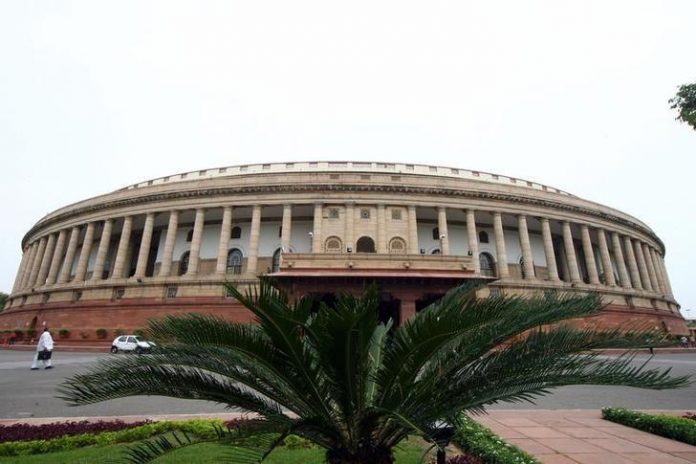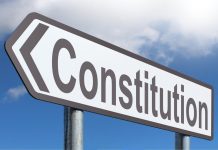This article is written by Shiwangi Singh, a law student from Banasthali University. This article primarily talks about powers of the President, the ways in which he can deal with the issues of the country, the procedure through which various bills go through, and how the President ensures smooth functioning of the administration.
It has been published by Rachit Garg.
Table of Contents
Introduction
As we start to talk about the legislative powers of the President, we need to understand the significance of the word ‘legislation’. If someone has legislative powers, it means he or she has the authority to make and give laws to the country to abide by. He or she has the supreme power to make new laws according to the situations prevailing in the country. The President has the responsibility to protect the constitution. He symbolises unity, integrity, and solidarity of the nation.
The President is declared as-
- The head of the Indian state.
- The first citizen of the country.
- The commander in chief of all the Indian Armed Forces.
The President is elected by an electoral college which consists of the elected members of the Lok Sabha and Rajya Sabha (MPs), the elected members of legislative assemblies of State and Union Territories of Delhi and Puducherry (MLAs).
The President holds his office for a period of five years from the date he enters upon his office.
Legislative powers of the President of India
Power of the President to summon, prorogue and dissolve the house
According to Article 85 of the Indian Constitution, the President of India can,
- Article 85(1)– He summons both the houses of the Parliament, which means he can order them to be present in a given specified time and place.
- Article 85(2)(a)– Prorogue both the houses of the Parliament, which means he can discontinue the session of the Parliament without dissolving the houses.
- Article 85(2)(b)– Dissolve the Lok Sabha, either before its complete term or after the completion of the term, in either cases fresh general elections will have to take place to appoint new members to the house.
- Adjournment sine dine
It means “without assigning a day for a further meeting or hearing”. The President can adjourn a house sine dine which means it is adjourned for an indefinite period and the next date to assemble or appear hasn’t been announced.
According to Article 108,
- The President of India can call both houses for a joint meeting in the presence of the speaker of Lok Sabha. Such meetings are conducted to clear the conflict between both the houses which arises over passing of a bill.
Article 108(1) states that joint sitting can be held when-
- Article 108 (1)(a) – The bill is rejected by the other house.
- Article 108(1)(b) – The house has disagreed with the amendments made to the bill.
- Article 108(1)(c) – If a bill passed by either of the houses stays in any of the houses for more than 6 months due to any issue then the President can call for a joint meeting. But this does not apply on a money bill.
Power of the President to address the houses

According to Article 87, the President gives a special opening address to both the houses of the Parliament assembled during:
- Article 87(1)– The first session after each general election to both the House of the people, after all the members have taken their oath and the Speaker has been elected.
- Beginning of the first session every year where both the houses are present together. In this session, the President talks about the various policies and programmes of the ruling government and also highlights the important works that were done by them in the previous year.
- Article 87(2)– Rules should be made about the allotment of time to different matters for discussion by the President in such addressals.
Power of the President to call for a joint meeting
According to Article 86(1),
- The President is bestowed with the right to summon both the houses of the Parliament separately or for a joint meeting at any time. This meeting is different from the special opening address that he makes at the first session of each year and at the first session after every general election.
The above right is termed as the ‘Right to address’ which can be exercised by him at any time of the year.
According to Article 86(2),
- The President has the right to send messages to both the houses of the Parliament regarding any issue that may be, for example- A pending bill.
Power of the President to present reports to the houses
The President of India while holding the office has to present several reports in front of the Parliament from time to time, those reports are-
- Under Article 112(1)– The President has to present reports in front of both the houses that includes a statement of receipts and expenditure of Government of India for that year.
According to Article 112(2), it should show separate reports of:
- The sum of total expenditure that was said to be charged from Consolidated fund of India and the actual expenditure spent.
- the sums required to meet other expenditure proposed to be made from the Consolidated Fund of India, and shall distinguish expenditure on revenue account from other expenditure.
- Under Article 151(1)– The Annual Audit of expenditures of the funds of the Indian Government, these reports are prepared by the Auditor-General of India.
- Under Article 323(1)– Annual report of the Union Public Service Commission, these reports contain the details about the work done by UPSC in that year and also some interesting facts about the civil examinations that are held every year, like for example, the total number of candidates belonging to different fields of subject who appeared in the examination.
- Article 281– Reports of Finance Commission explaining the details in written form about the actions taken by the commission.
The Finance Commission evaluates the state of finances of the Union and State governments.
- Reports of Special officers of Scheduled Castes (SC) and Scheduled Tribes (ST).
- Reports of Special officers of Linguistic Minorities and Backward Classes.
Power of the President to formulate special rules
Under Article 239, The President has the power to formulate special rules for the Union Territories.
- In certain circumstances, the President can make rules for the peace, progress, and good governance of the Union Territories of Andaman and Nicobar Islands, Lakshadweep, Dadra and Nagar Haveli, Daman and Diu and Puducherry.
- In the case of Puducherry, the President can only make rules when the assembly is dissolved and suspended.
- He appoints speaker, deputy speaker of Lok Sabha, chairman and deputy chairman of Rajya Sabha
- He consults the election commission of India on questions of disqualifications of MPs.
Military powers of the President
- He is the commander in chief of all the Indian armed forces.
- He has the power to declare war or maintain peace with any nation on the advice of the ministers and the Prime Minister.
- All kinds of treaties with other nations are signed in the name of the President of the nation.
Power of the President to assent to bills
A bill is a legislative draft which includes measures or rules for smooth functioning of a country. If a bill successfully gets agreed and passed by the members of the Parliament, after this the President agrees and gives his assent to it and then it becomes an act.
There is rigorous contemplation in the Parliament regarding the bill, because eventually it is going to become a building block of the Indian Constitution.
According to the Article 111, when a bill is passed by the houses it must be presented before the president, he would either give his assent to the bill or withhold his assent therefrom provide that the president may as soon as possible send the bill back to the house without making amendments back to the house for reconsideration and if the house sends that bill again by making or not making changes, then the President will have to give his assent to it.
In case of Ordinary bills, the President can agree to the terms of the bill, withhold his assent or can send it back to the Parliament to make necessary changes.
In case of Money bills, he can either give his assent or withhold his assent, he cannot send it back for reconsideration.
In case of Constitutional Amendment bills, he has to agree with the bill, he neither can disagree nor send it back to the House.
Money and finance bill
Money Bills and Finance Bills both require the assent of the President before it is introduced, however, a Finance bill is an ordinary bill whereas the Money bill is a government bill.
According to Article 110(1), any bill is said to be a deemed money bill if it mentions any of the following things in it-
- The abolition, alteration, remission or regulation of any tax.
- The borrowings of money done by the Indian Government or any kind of guarantee provided by the Indian Government.
- Amendments to financial obligations undertaken by the Indian Government or to be taken by the Indian Government.
- The Consolidated fund or the Contingency fund of India, the payment of money into or withdrawal of money from any such fund.
- The appropriation of money out of the Consolidated fund of India.
- The expenditure done by the Consolidated fund of India.
- The receipt of the money on account of the Consolidated fund of India or the public account of India
- Custody or the issue of such money and the audit of the accounts of the Union and the State.
According to Article 110(2), a bill shall not be called as a money merely because it deals with imposition of fines, pecuniary penalties, fees for licences, fees for services or about abolition, remission, alteration or regulation of any taxes by any local body.
A financial bill deals with the provisions of revenues and expenditures like alteration in the existing tax structure, imposition of new taxes, and continuance of the older tax systems.
Power of the President to dissolve the Lok Sabha
Under Article 83 of the Indian Constitution, the President of India has the power to dissolve the Lok Sabha. Lok Sabha can be dissolved in following circumstances-
- Generally, the President dissolves the Lok Sabha on the advice of the Prime Minister after the completion of its tenure of 5 years, in order to command a majority in the Lok Sabha again.
- If the Prime Minister on losing the majority advises the President, then he can dissolve the Lok Sabha.
- The President may hear the Parliament and dissolve the Lok Sabha if he finds that there is conflict within the ruling party, and the party position is confusing.
- He can dissolve the Lok Sabha if he finds the Prime Minister is acting unconstitutionally, abusing his powers and majority in the House. Here, this act of the President would be considered constitutional.
Power of the President to appoint members
- According to Article 80(1), the President can appoint 12 members to the Rajya Sabha, who have practical experience and substantial knowledge in the field of Arts, Literature, Sciences, and Social Services.
- Given in Article 331, if the President finds that the Anglo-Indian community is not well represented in the Lok Sabha then he can appoint not more than 2 members from the Anglo-Indian community. But in January 2020, these seats reserved in the parliament and state legislatures were discontinued by the 104th constitutional amendment act, 2019.
- He appoints the attorney general of India and determines his remuneration.
- He appoints the chairman of the Election Commission and Finance Commission of India.
- He appoints the Comptroller and Auditor General of India.
- He appoints the chairman and members of the Union Public Service Commission of India.
- He appoints administrators of Union territories and the State Council.
- He appoints the Chief Justice of India.
Emergency powers of the President

The President can exercise emergency powers in following cases –
- National Emergency(Article 352(1))- On the request made by the cabinet of ministers, the President can declare national emergency if he gets convinced that the national security or any part of the country is threatened by war or external aggression, or armed rebellion.
- State Emergency(Article 356 and Article 365)- It is also known as President’s Rule. If the state administrative body collapses due to any reason or if it is found that the State government cannot govern the state according to the provisions of the constitution, then the President can declare an emergency.
- Financial Emergency(Article 360)- It is imposed by the President if he reckons financial stability of the country is in danger. A proclamation declaring financial emergency must be approved by both the Houses within 2 months from the date of its issue.
Ordinance making powers of the President
The President has the ordinance forming powers which can be issued only on the matters on which Parliament can legislate. The President with the issuance of the Ordinance can amend or repeal an act of the Parliament, but this will be prevalent only for a short duration of time, because Ordinances are issued for a shorter term itself.
Amendments
A new clause (4) was introduced in the Article 123 which stated that if the President is satisfied and agrees with the issuance of the Ordinance, then it cannot be questioned for a judicial review.
The clause (4) inserted in the Article 123 was removed and it made the Ordinance open for questioning and Judicial review.
Relevant Case:
AK Roy vs. Union of India, 1981– It was decided that the President’s decision can be subjected to judicial review, but on meaningful grounds and not on “every casual and passing challenge”.
The Parliament of India has more powers to amend any law than the President, the President can only make amendments with the help of the ordinances.
According to Article 368 of the Constitution of India, the Parliament has the power to make amendments by-
- The Parliament can amend or bring variation to any provision of the Constitution by following a proper procedure as stated in the article.
- Any kind of amendment has to start with the introduction of a bill which has to be passed in both the houses to get a clear cut majority of its acceptance and then sent to the President for its assent, after that the following amendments gets into action.
- Nothing in Article 13 shall apply to any amendment made under this article.
- There is no limitation in amending any law, by addition, variation or repeal the provisions of the Constitution under this Article.
Ordinance-making
Ordinance is a type of law that is propagated by the President when both of the houses are not in session or when either of them is not in session. The recommendation of the Union Cabinet is a must for the propagation of the Ordinance. Ordinance can only be issued on the matters on which Parliament can legislate.
The President issues an Ordinance when he is convinced about any situation which requires an immediate action and is convinced that the situation cannot wait for the Parliament to get into a session.
For an ordinance to become active, it must be approved by the Parliament within 6 weeks or they shall cease to operate. Even if Both the Houses disagree with it, the ordinance will cease to be functional.Parliament is required to sit within six weeks from when an Ordinance was announced.
The Article 123 deals with Ordinance making powers of the President, which is considered as a very important legislative power.
Conclusion
The President of India indeed plays a major role in the administration of our country. From addressing the sessions of the Parliament to issuing an ordinance, he has got major roles to play. The President stands like a solid figure who looks after each and every matter and gives its will towards or against it, in this way he is kept aware of everything happening in the country. Without a President, it would be difficult for the political parties, the Houses of the Parliament to resolve their deadlock over political matters which would definitely curtail the smooth administrative functioning in a country like India.
Frequently Asked Questions (FAQs)
Can a bill be passed without Rajya Sabha?
Only the money bill does not require the approval of the Rajya Sabha otherwise all other bills need approval from both the House before it is presented before the President.
What is the veto power of the President of India?
3 types of veto power are present with the President:
- Absolute Veto- he completely disagrees with the bill, ending it then and there and it never becomes an act
- Suspensive Veto-he returns the bill with or without consideration back to the Parliament
- Pocket Veto-he does not give any view and remains neutral in any matter.
What is the maximum life of an Ordinance?
6 Months and 6 Weeks
References
- https://www.indiatoday.in/education-today/gk-current-affairs/story/the-president-of-india-powers-and-responsibilities-1880001-2021-11-23
- https://www.gktoday.in/topic/legislative-powers-of-president-of-india/
- https://www.jatinverma.org/uploads/downloads/Legislative_Power_of_President.pdf
Students of Lawsikho courses regularly produce writing assignments and work on practical exercises as a part of their coursework and develop themselves in real-life practical skills.
LawSikho has created a telegram group for exchanging legal knowledge, referrals, and various opportunities. You can click on this link and join:
Follow us on Instagram and subscribe to our YouTube channel for more amazing legal content.
 Serato DJ Crack 2025Serato DJ PRO Crack
Serato DJ Crack 2025Serato DJ PRO Crack










 Allow notifications
Allow notifications


